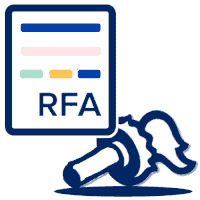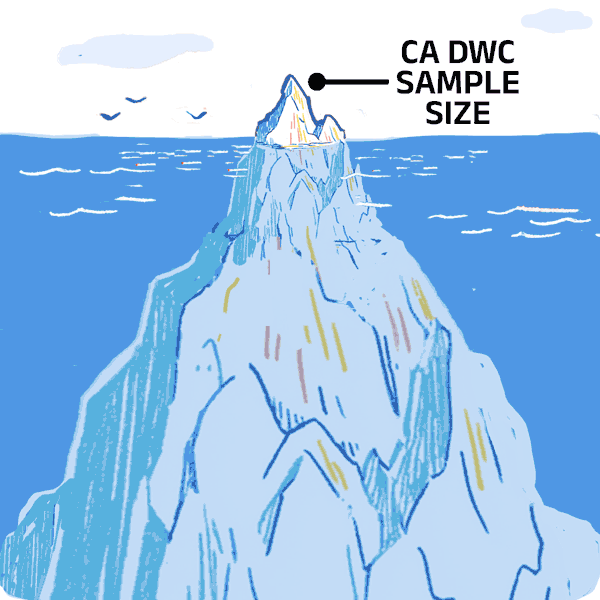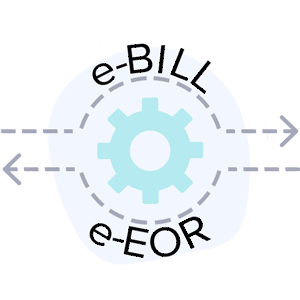Pro Tip: Submit RFAs During Liability Disputes

When the employer and injured worker are locked in an injury liability dispute, the provider is frequently caught in the crossfire. Often, treatment cannot wait for the long legal battle to resolve, but the claims administrator for the employer is under no obligation to conduct Utilization Review (UR) while the liability is disputed.
What’s a provider to do?
When liability is disputed, the provider must continue to submit Requests for Authorization (RFAs) to guarantee proper reimbursement in the event the employee prevails. Per the Workers’ Compensation Appeals Board (WCAB): If the employer is ultimately assigned liability, the claims administrator must retroactively process the submitted RFAs “immediately upon the date determination of defendant’s liability became final.”
Provider Experiences With Disputed Liability
At DaisyBill, we help providers and their billing agents navigate a hellish array of obstacles to correct payment. Recently, one billing agent wrestled with multiple cases in which the claims administrator deferred authorization on the grounds of disputed liability.
As Labor Code Section 4610(l) states:
Utilization review of a treatment recommendation shall not be required while the employer is disputing liability for injury or treatment of the condition for which treatment is recommended pursuant to Section 4062.
In such cases, the provider is required to continue to request authorization within the usual appropriate timeframes, and the utilization review decision must come after the claims administrator finally accepts liability.
CCR §9792.9.1 Deferred UR Decision
When a provider submits an RFA while liability is disputed, California Code of Regulations §9792.9.1 requires that a claims administrator, within five days of receipt of the RFA, send a written decision deferring utilization review (UR).
The written decision must be sent to the requesting physician, the injured worker, and if the injured worker is represented by counsel, the injured worker's attorney.
A provider must continue to submit RFAs for each and every new recommended course of treatment and the claims administrator must issue timely written defer decisions for each of those RFAs.
WCAB and Liberty Mutual Precedent
Once the claims administrator accepts liability — even after a long dispute — the claims administrator must process all relevant RFAs. This was amply demonstrated in the WCAB case Belling vs. United Parcel Services Inc.; Liberty Mutual Insurance Company.
The employee, Daniel Belling, sustained serious specific and cumulative injuries that arose out of and occurred during the course of employment. While UPS denied liability and the legal battle trudged on, Belling required a multitude of services, from home health care to an electric wheelchair and automobile modifications.
It wasn’t until 2013 that the WCAB affirmed UPS’s liability. However, as the WCAB decision states:
Although [Liberty Mutual] was not required to conduct UR of Dr. Burstein's treatment recommendations while it was disputing liability for applicant's claimed injuries. . . defendant was required to conduct a UR of the treatment requests, initially set forth in Dr. Burstein's July 22, 2010 report...and reiterated verbatim thereafter, immediately upon the date the determination of defendant's liability became final…
The provider does not need to resubmit their deferred RFAs to the claims administrator.
Once liability is established, CCR §9792.9.1 requires a retrospective utilization review decision within 30 days from the date of final liability, and prospective review within 5 days from the date of final liability.
Once liability was established, Liberty Mutual failed to timely conduct utilization review for Mr. Belling’s requested treatment. In fact, Liberty Mutual waited over seven months. The WCAB delivered its ruling on June 21, 2013; Liberty Mutual didn’t initiate UR until January 28, 2014.
Per the WCAB:
We find defendant's passive reaction to Dr. Burstein's repeated requests for authorization of the treatment recommendations at issue here, both inexcusable and troubling. Certainly after receiving the final determination of its liability for applicant's injury claims, it was incumbent upon defendant to take prudent steps to insure its compliance with its mandatory obligation under sections 4600 and 46l0(g)(8). It did not do sweet time, the WCAB also ruled that Liberty Mutual’s eventual UR denial, issued on February 4, 2014, was untimely and invalid. From the WCAB’s Dubon II decision, an untimely UR decision is an invalid UR decision.
The lesson? When providing services during a liability dispute, no matter how long it takes the WCAB or any other authority to untangle the situation, submit each and every RFA. When the legal dust finally settles, you’ll be glad you did.
At DaisyBill, we know how to help providers navigate the twists and turns of authorization. Our Billing Software includes all the tools you need to submit compliant RFAs, and our RFA response tracking alerts you when a response is overdue. Schedule a free demonstration today.
REQUEST DEMO
DaisyBill provides content as an insightful service to its readers and clients. It does not offer legal advice and cannot guarantee the accuracy or suitability of its content for a particular purpose.


